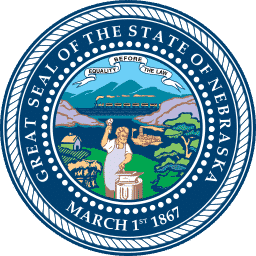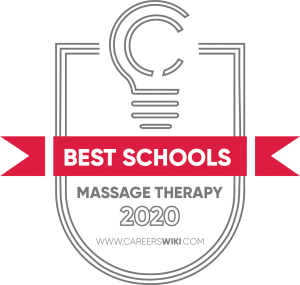…
There are two massage therapy schools in Nebraska—an Omaha college and a Lincoln institute. Both are privately owned and focus exclusively on bodywork.
Curricula feature classes, labs, and clinics. Certificate programs take a year to complete. Both schools also offer associate degrees, which require at least eight additional months of study. Both programs qualify graduates to apply for state licensure.
The demand for massage therapists in the Cornhusker State is growing rapidly. Labor officials project approximately 80 job openings annually through 2026.
See study options in another state by visiting our massage schools page.

This government regulatory agency is a division of the state Health and Human Services Department. It licenses practitioners who meet educational and examination standards, and enforces license renewal and continuing education requirements.
The board establishes criteria for curricula at massage therapy schools, and requires postsecondary institutions to have affiliations with licensed physicians. It also mandates certain recordkeeping protocols and other policies. Officials inspect school facilities annually to ensure they comply with safety and hygiene rules.
Another duty is to investigate complaints of alleged illegal or unethical behavior. Practitioners who violate regulations are subject to disciplinary action, including the temporary or permanent loss of their licences.
The board is made up three professional members and two state residents who represent the public.
To become a massage therapist in Nebraska, students must begin by securing high school diplomas or GEDs. They then need to win acceptance to accredited massage therapy schools with programs that comply with state requirements..
The board mandates that a curriculum provide 1,000 or more clock hours of instruction and training. This is to include at least 100 hours of classes in each of the following: anatomy, physiology, pathology, hygiene, health services management, massage theory and practice, and hydrotherapy.
Individual schools determine the content of the remaining 300 hours. A program may teach a wide variety of massage techniques, require multiple business courses, or include general education classes in the core curriculum. Fifteen clock hours are comparable to one semester hour.
Students have to pass a final practical exam assessing their knowledge of sanitation, draping, effleurage, and petrissage. They can then apply for licensure. An applicant must be at least 19 years old and a graduate of an approved education program. The board also requires CPR certification, a criminal background check, and a 75 percent score on a jurisprudence exam.
In addition, prospective practitioners need to post an acceptable score on the Massage & Bodywork Licensing Examination (MBLEx). On online exam application is available from the Federation of State Massage Therapy Boards. Testing sessions take place at Pearson VUE centers.
Practitioners here have to get new licenses every second year. They must receive 24 hours of continuing education, including three hours of ethics and 14 “hands-on” hours in workshops.
We selected the schools below based on the programs that they offer, accreditation, student population, graduation rate and reputation.
View our Ranking Methodology to learn more about how we rank schools.

67%
11
This small private school in Lincoln, established in 1993, awards therapeutic massage certificates and associate in applied science degrees.
Students complete 1,000 clock hours in 12 months to earn certificates. The curriculum satisfies state requirements. The AAS involves the same coursework, plus general education classes. Massage specializations, called “majors,” are chiropractic, long-term care, animal, and facial.
The MI Spa & Salon, in Lincoln and Omaha, provides opportunities for students to practice their techniques on real clients. The school has an open admissions policy, but requires minimum high school GPA and ACT or SAT scores.
100%
35
Students at this Omaha school also have certificate and associate degree options.
Those in the 12-month, three-semester diploma program take the required courses plus
Wellness, Business Arts, Specialized Massage, Business Exploration, Kinesiology, Complementary Therapies, and Advanced Massage. Students perform two internships and community service.
Earning a five-semester AAS entails eight additional months of study. Courses include Nutrition, Communications, Business, and Psychology. Other classes teach cancer massage, sports massage, spa treatments, and herbal therapies.
The school also offers an 18-month Hellerwork Structural Integration Practitioner Training Program. There are continuing education classes in Bodywork Alternatives (on campus) and Ethics (online).
$19
$39,800
25%
A mid-range practitioner in this state receives about $39,800 a year or more than $19 per hour, according to the U.S. Bureau of Labor Statistics (BLS). That is slightly below the national median of $41,400 a year or about $20 per hour.
The state’s most affluent 10 percent make around $67,400 or $32.50, less than the $78,300 or $37.60 nationwide. The poorest 10 percent get over $29,000 or about $14 in Nebraska, better than the national average of around $21,350 or $10.25.
The BLS estimates that employment of massage therapists in this state will elevate from 590 in 2016 to 730 in 2026. Such a rate of expansion (25 percent) would be about the same as the 26 percent that the agency predicts nationwide.
Sources: U.S. Bureau of Labor Statistics, CareerOneStop

LIMITED TIME DEAL